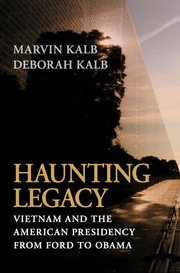Q&A with Janis Nark, Lt. Col. USAR (Ret.)
 Monday, April 23, 2012 at 5:23PM
Monday, April 23, 2012 at 5:23PM Janis Nark, Lt. Col. USAR (Ret.), was 21 years old when she went to Vietnam as an Army nurse, and two decades later served in Desert Storm. She now sits on the board of the Vietnam Veterans Memorial Fund.
Q: How would you describe your experience serving in Vietnam, and how did it compare with your experience in Desert Storm?
A: I was 21 and 22 years old when I served as a nurse in Vietnam. I had to learn a lot in a very short period of time. We young nurses struggled daily with the trauma or the tedium, and every day we sandbagged our hearts and our minds in order to do our jobs. We pushed the emotions down and said "I'll deal with this later." For many that " later" would have to wait for 20 or 40 years, or forever. I was 41 and 42 for Desert Storm. I spiraled into a deep depression. I had lots of good reasons for being depressed, but they had nothing to do with Desert Storm, they had everything to do with Vietnam and all the memories, emotions and pain I had "stuffed." I simply didn't know that at the time. I just thought I was going crazy. This was the beginning of my dealing with PTSD. It's been a long journey and is still a work in progress.
Q: How have things changed for women in combat zones from the Vietnam era to today, and do you see additional changes on the way?
A: That's hard for me to say since I have no first-hand experience of what things are like for the women with their boots on the ground now. I can tell you some of what I've seen in my volunteer work with the Disabled Vets at their Winter Sports Clinic here in Snowmass, CO. I see the women in wheelchairs. One is a pretty blonde I've been watching for six years. When I first saw her she was tiny, shriveled up and non-communicative. I heard the story from one of her caregivers. She was in Iraq, a Marine out on patrol with her squad. She was beaten and raped by each one of them and left for dead. She managed to somehow get herself found. They are all behind bars for a while. She will be in a wheelchair for the rest of her life. Each year she sits a little taller in her chair, she has the use of one hand, her hair is clean and combed and we talk. I tell her how proud I am of her progress, and last year I saw her smile for the first time. There are women with "therapy dogs," many with artificial limbs, of course wheelchairs; there are more every year. Men getting used to women in combat will take a long, long time. Their treatment by the VA in many instances is shameful, grossly inadequate, antiquated and dismissive.
Q: What reactions did you get upon returning to the United States from Vietnam, and did you find differences in how people reacted to you compared with how they reacted to men returning from the war?
A: Only my family knew I had been in Vietnam. They didn't know how to deal with me. They were loving and kind, but I had changed. In the span of one plane ride I had gone from war to peace, in the span of one year from childhood to irrevocable adulthood. As difficult as it was for the young men to talk about the war after their return, it was impossible for the women to do so. Even as "Women's Lib" was making its voice heard and the feminist movement was sweeping America, the overriding perception at the time was, "Nice girls didn't join the Army, nice girls certainly didn't go to war." I knew that wasn't true, and frankly that just pissed me off. So I didn't talk about it. It was my deepest darkest secret for 20 years till Desert Storm when it all came crashing down on me.
Q: You are on the board of the Vietnam Veterans Memorial Fund—how do you think the Wall has affected perceptions of the war?
A: I don't believe the mission of The Wall was to affect the perception of the war in Vietnam. It was built to honor those who served and those who died. It's a place of healing. It's a safe place to go to grieve, to meet those who served, those who waited, those who lost. It's a place of honoring and remembrance and communicating with those lost souls…the father, the brother, the daughter, the buddy, the son, the patient we couldn't save.
I think that's why The Center is so critical an adjunct to our Wall. We have so much more to say, to share, to honor. This will be the place it happens.
Q: What do you think the Vietnam War’s impact has been on the thinking of subsequent U.S. leaders when they consider sending troops into battle?
A: I don't think they think at all.
Q: Anything else you think we should know?
A: The book "What It Is Like To Go To War" by Karl Marlantes should be required reading by every member of the Armed Forces and Congress, and especially our commander in chief. It should also be required reading by every person before they are allowed to raise their hand and serve in our armed forces.
Interview with Deborah Kalb, co-author of Haunting Legacy.



Reader Comments (1)
I am so proud to have shaken this lady's hand and to be considered by her as a friend. She is an amazing person who unselfishly gives her time to furthering the causes of veterans. I saw her WOW the crowd when Bill Clinton and Colin Powell were sitting behind her, waiting for their turn at the microphone. Janis did not come to just speak that day, but to deliver a message of caring and healing at the dedication of the Vietnam Womens Memorial at the Wall. She was far and away the best speaker with best message and received the best reponse from the thousands in the crowd that day.
I totally concur with her recommendation to read "What It Is Like To Go To War" by Karl Marlantes, It was a difficult read for me with many stops and starts. I found my eyes moving over the words, but my emotions carrying me away. I would turn a page and realize my thoughts were still processing the power of the messages a page or two back. I cannot fathom the courage it took for Karl to see that project through to the end. Thank you, Karl.
Welcome home to all my Bothers and Sisters who have ever planted a boot in a hostile fire zone. Every soldier returns from war wounded in some way. I hope you all find treatment and healing as soon as is possible.
Thank you, Janis. I cannot say enough!
Michel Strickland, LTC, Retired, US Army